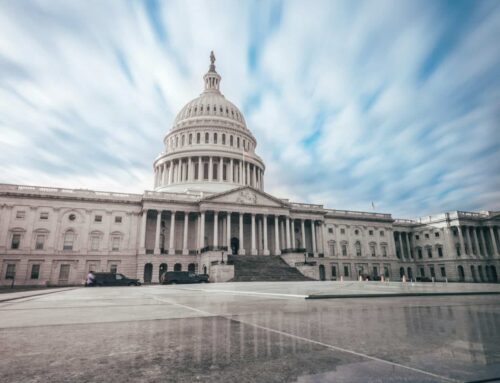TCS Vice President Steve Ellis was invited to testify before a House Committee on Financial Services Subcommittee holding a hearing titled “Approaches to Mitigating and Managing Natural Catastrophe Risk: H.R. 2555, The Homeowners’ Defense Act.”
Below you will find his oral testimony and here a link to his written testimony submitted to the House Committee on Financial Services Subcommittee on Housing and Community Opportunity and Subcommittee on Capital Markets, Insurance, and Government Sponsored Enterprises.
###
March 10, 2010
Good afternoon, Chairman Kanjorski, Chairwoman Waters, Ranking Members Garrett and Capito, members of the subcommittees. Thank you for inviting me to testify, I am Steve Ellis, Vice President of Taxpayers for Common Sense, a national non-partisan budget watchdog.
Taxpayers for Common Sense believes H.R. 2555 is fundamentally flawed and strongly opposes the legislation. This bill would actually end up putting taxpayers at risk and subsidizing people to live in harm’s way. Americans across the country would be forced to pay for a narrow bailout that primarily helps the well off. It doesn’t make sense.
We are joined in our opposition by SmarterSafer.org – allied groups which run the gamut from American Rivers to Americans for Prosperity, National Association of Professional Insurance Agents to the National Wildlife Federation. The depth and breadth of the taxpayer, environmental and industry groups opposed underscores the broad-based concerns with H.R. 2555.
The Primrose Path
Much of the argument for the programs under the bill relies on a “pay me now or pay me later” – essentially, by providing reinsurance and debt guarantees, taxpayers will avoid fiscally messy and expensive bailouts of state programs in the aftermath of large disasters. Unfortunately, we have heard that seductive siren song before with the National Flood Insurance Program.
Cheap federal flood insurance helped fuel the coastal development. Though intended to provide only limited, short term subsidies and encourage responsible construction, it actually served to increase subsidies. Today a program that takes in roughly $2 billion in premiums annually is $20 billion in debt to the U.S. taxpayer. It is extremely likely that most, if not all, of this debt will be forgiven.
We walked down that primrose path decades ago, and now we are stuck with federal flood insurance. But today, staring into a budgetary abyss with predicted average deficits of $1 trillion a year over the next ten years, we cannot afford to make that costly mistake again.
Let’s be clear about a few points. Nothing in this bill pre-funds anything. In any major disaster like Katrina, taxpayers will still have to pay for infrastructure repair, debris removal, emergency relief and services. Furthermore, nothing in this legislation forces states to use the subsidies to help lower income homeowners obtain insurance.
The three major components of H.R. 2555 are all directed at accomplishing the same thing: Shifting the cost and risk from bad decisions by a few to the rest of country. And in so doing, they would enable continued subsidized insurance rates which promotes unwise development and increased risk.
Taxpayers as a Backstop
The bill creates a federal reinsurance program for “eligible” state programs, currently only Florida and California qualify although others could join.
Curiously, the bill stipulates that the program not compete with private markets and that prices be actuarially sound. First, reinsurance is available so it would compete, and secondly, at actuarial rates the program would be more expensive because it would be forced to sell reinsurance to a very narrow pool of high risk states, whereas the private market could distribute the risk worldwide.
Bailing Out Bad Decisions
The debt guarantee program would put taxpayers on the hook to back state programs that insure earthquake losses at $5 billion or other perils at $20 billion. The $20 billion figure fits fairly closely with the gap between the total liabilities faced by the Florida Hurricane Catastrophe Fund, the state reinsurance program, and the fund’s available hard assets.
Beware of federal guarantee programs. They are presented as having little or no cost to taxpayers. But if the federal government picks up the tab for enormous state losses – particularly those of politically powerful states such as Florida and California –much of that amount could be forgiven.
Fannie and Freddie Redux
H.R. 2555 creates a National Catastrophe Risk Consortium chaired by the Secretary of the Treasury. Although the legislation stipulates that the Consortium is not part of the U.S. Government, it is pretty clear that with board membership and a federal charter, it will be viewed as such. And its financial actions will be viewed as activities with the backing of the federal government similar to what occurred with
A Better Way Forward
H.R. 2555 notes that natural disasters are going to continue to damage and destroy homes and that the U.S. needs to be better prepared for and better protected from catastrophes. We agree.
We have long supported efforts to mitigate or eliminate the impacts associated with natural disasters. A few ideas: Eliminate the parochial earmarks that have littered FEMA’s pre-disaster mitigation program in recent years. Separately, little of the $5 billion in stimulus funds that was given to the states for weatherization has been spent. Some of these funds should be redirected to catastrophe mitigation efforts.
Florida should look slightly north to South Carolina and Virginia for examples of good policy. South Carolina’s programs have let risk, not politics, determine rates in coastal areas, and the state has helped residents mitigate their homes. In Virginia, the FAIR plan (Fair Access to Insurance Requirements) provides true “last resort” coverage for those who can’t get coverage elsewhere, and the state has private reinsurance to cover claims.
The major provisions in H.R. 2555 would actually serve as an impediment to a better way forward, expanding subsidies to high risk development and removing market incentives to mitigate future storm damages or move people out of harm’s way.
Conclusion
Higher insurance premiums are never popular, and politicians are in the business of being popular. This is a key reason why government-run insurance programs are fraught with fiscal peril.
Taxpayers for Common Sense’s mission is “making government work.” Sometimes the best way for government to work is to not make matters worse. H.R. 2555 would pile subsidy on top of subsidy to preserve an insurance house of cards in Florida. In these difficult budgetary times, we cannot afford to bailout one state for politically expedient decisions of the past.
####










